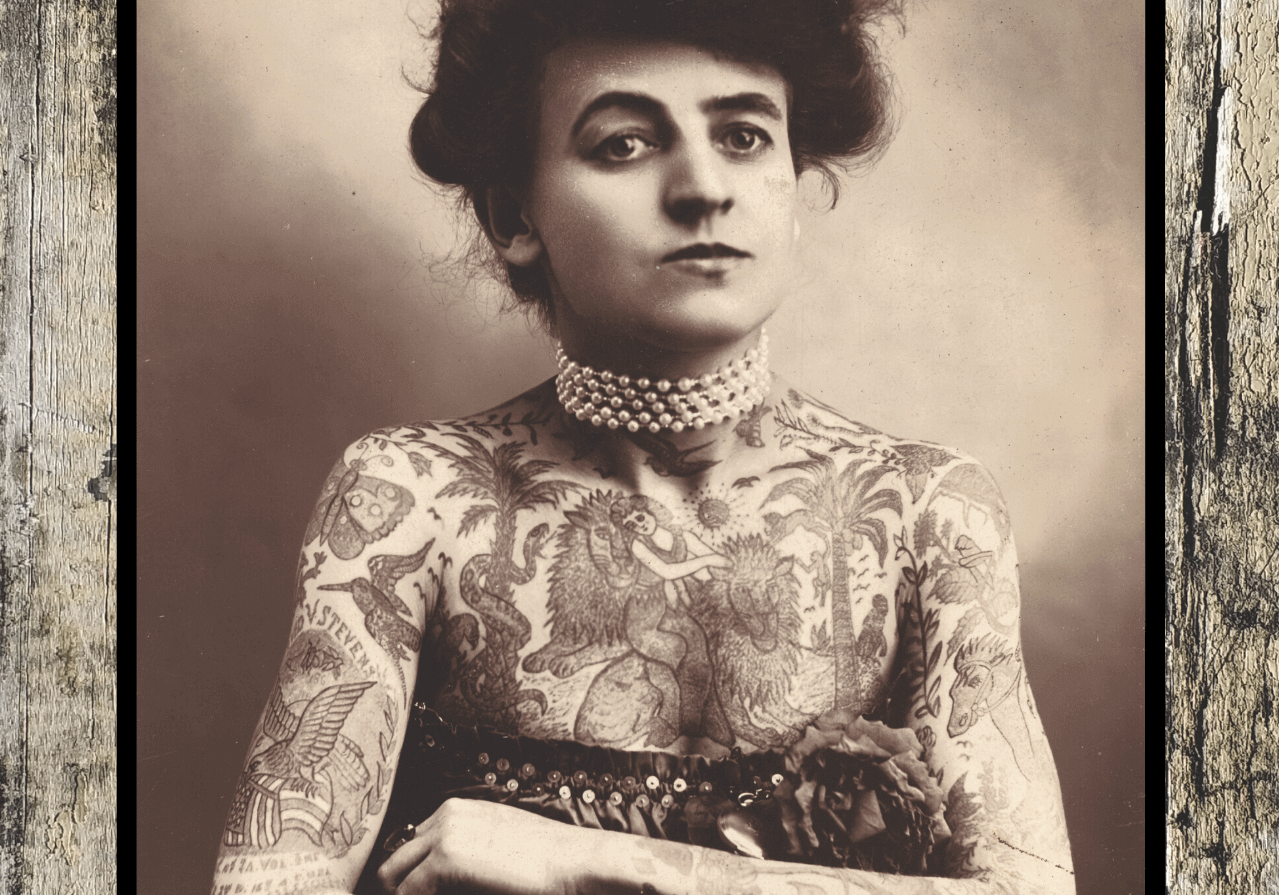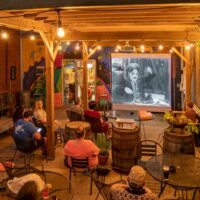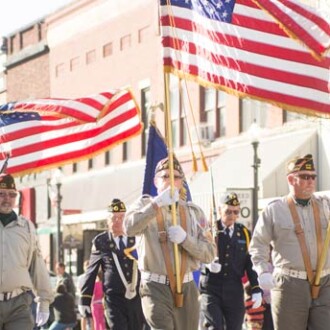Emporia is 163! Recognizing the People Who Made Emporia What it is Today
Posted on Feb 18, 2020 by Visit Emporia

Our great city of Emporia, Kansas, turns 163 this week. Founded as a business venture on Feb. 20, 1857, it has grown into the nearly 25,000 population that it is today. Settlers were beginning to come into the territory when G.W. Brown, a young editor of The Herald of Freedom newspaper in Lawrence, saw a business opportunity to help himself and a change to help emigrants looking for a place to settle, according to a 1957 centennial-year history compiled by Robert Triplett. Many of the best town sites had already been settled by the winter of 1857, but Brown knew of one location that had not been taken. It had been described to him by a friend a few months earlier as “the loveliest site in the world for a town.” Emporia was founded on February 20, 1857, on an area of upland prairie, six miles above the junction of the Neosho and Cottonwood rivers.
And the rest, as they say, is history. To read more about Emporia’s history, visit this page.
Behind the scenes in the early days and beyond, many people influenced and shaped Emporia and formed traditions and places that still remain today.
The Plumbs, newspaper, and eventual home for women
Preston Plumb and his wife Carrie Plumb’s legacy is continued through Plumb Place, which now serves as a home for women who find themselves in homelessness. According to Emporia State University’s Special Collections and Archives, Preston Plumb was born on Oct. 12, 1837. As one of the original founders of Emporia, where he established the Kanzas News, the first newspaper in Emporia, he had a profound impact on Emporia. He was active in Territorial politics and was elected to the newly formed Kansas House of Representatives in 1862. He was also a United States Senator. What today is known as Plumb Place was built in the 1870s by the Plumbs. Senator Plumb died in the early 1890’s while in office. When Carrie Plumb Plumb died in 1920, the Plumb heirs thought it would be appropriate to donate their family home to the YWCA to be used as a home for women. The family also donated $20,000 to move the carriage house forward and convert the space into sleeping rooms. Since Plumb Place opened its doors in 1921, it has remained a refuge for women and is now in its 99th year of service to the women of Lyon County.
William Allen White, newspaper and national recognition
William Allen White was born on Feb. 10, 1868, the White family are among the most influential people in Emporia’s early history. According to this article, White, originally from El Dorado, Kansas, borrowed $3,000 to purchase The Emporia Gazette, which he owned and managed until his death. Through his political and personal influences, White gained Emporia national recognition. His editorial What’s the Matter with Kansas plunged him into the national spotlight. “Guests to the White family home included U.S. presidents and other well-known people of the day. Author Edna Ferber learned of Oklahoma’s land rush days during such a visit and in 1929 finished the novel Cimarron, based on the topic,” according to this article by the Kansas Historical Society. Today, White’s legacy continues through The Emporia Gazette, which remains family-owned, the William Allen White Children’s Book Award, and a school, William Allen White Elementary is named after him.
Maud Wagner, tattoos and national influence
Located in the heart of downtown Emporia, Maud’s Tattoo Company was inspired by Maud Wagner, who was born in 1877 in Lyon County. Maud was the first-known female tattoo artist in history. As a young adult, Maud was a performer in various traveling circuses as a contortionist and trapeze artist. Her travels with the circus took her to the 1904 World’s Fair, where she met Gus Wagner—a tattoo artist who described himself as “the most artistically marked up man in America.” She agreed to go on a date with him in exchange for a lesson in tattooing. They were married several years later. Maud apprenticed with her new husband, practicing tattooing. She learned how to give traditional “hand-poked” tattoos, becoming a talented artist and the first known female tattooist in the United States. Although the tattoo machine had recently been invented, the Maud and her husband were two of the last tattoo artists to work by hand. They traveled across the United States, as artists and attractions. Their daughter, Lotteva, started tattooing at the age of nine and went on to become a skilled tattoo artist herself.
Alvin “Al” King, Veterans Day goes national
Alvin “Al” King’s legacy is celebrated every year on Nov. 11, what we know today as Veterans Day. According to http://www.allveteransday.org/, in 1953, Emporian Alvin J. King proposed that Armistice Day be changed to Veterans Day to recognize and honor all veterans from all wars and conflicts. Veterans Day was first organized and celebrated in Emporia in 1953. Kansas Congressman Ed Rees, also an Emporian, then took King’s proposal to Congress, and President Dwight D. Eisenhower, also of Kansas, signed the bill proclaiming November 11 as Veterans Day. The first nationwide observance of Veterans Day was on November 11, 1954. What King Started is not only reflected nationally, but locally. Emporia celebrates the All Veterans Tribute, which includes events that celebrate veterans. The All Veterans Memorial and the Tablets of Honor recognize veterans from across the country.
Richard Howe, Welsh settlers
Visitors can still roam the halls of a more than 100-year-old Welsh Farmstead, known today as the Howe House. Richard Howe and his family built the home that has 18-inch thick limestone walls in 1867, only 10 years after Emporia was founded. Richard Howe’s influence went beyond the home they built, according to this timeline. Recognized as an accomplished stone mason, Richard worked on buildings including the first Lyon County Courthouse; the first building at the Kansas Normal School (now ESU, “Sunken Garden” site of building’s foundation); the iconic Chase County Courthouse; Indian stone houses at Kaw Mission in Council Grove; and numerous others.
Lyman Kellogg and the formation of Kansas State Normal School, now Emporia State University
Emporia State University’s legacy, first known at the Kansas State Normal School, started with the first president of Kansas Normal School and its only teacher, Lyman Kellogg, taught 18 students on the second floor of the district school house, according to this page on ESU’s website. The university was founded in March of 1863 when the Kansas Legislature passed the enabling act to establish the Kansas State Normal School. Although founded in 1863, the first term did not begin until February 15, 1865. At the first commencement on June 28, 1867, Kellogg presented diplomas to Mary Jane Watson, a Civil War heroine and Judge Watson’s daughter, and to Ellen Plumb, from Senator Plumb’s family. Kellogg saw to it that the Normal got off to an auspicious start before becoming a successful lawyer, honored judge, and Attorney General of Kansas. Kellogg left KSN in 1871 to pursue a career in law and politics. He was elected as a Republican to the Kansas House of Representatives and the Kansas Senate, and in 1889 he was elected Kansas attorney general. In 1891 he returned to Emporia to continue his law practice. Kellogg served as KSN regent from 1899 to 1907.
Edward Jones “E.J.” Alexander, a solution for childhood hunger and eventual summer camp for children
Edward Jones “E.J.” Alexander’s legacy lives on through Camp Alexander, which sits just outside Emporia off of Old Highway 50. According to Camp Alexander’s website, E.J. was born into slavery in 1854 and he came to Emporia from North Carolina shortly after the Civil War ended. For Almost thirty years, E.J. The children flocked to him as he gave them fruit and vegetables. When he died, he left all of his savings and forty acres he owned to the orphaned and needy children of Emporia, Lyon County and the State of Kansas. His Will stipulated that one acre be set aside for his grave and for the burial of others too poor to afford plots. His Will went unnoticed for several years until, in the 1930’s, it was discovered by James Putnam, a young Emporia attorney. It was through Putnam’s efforts that the Will was probated, and Camp Alexander was established. Today Camp Alexander serves as a summer camp and day came to the children of Lyon County.
Visit Emporia
Visit Emporia welcomes travelers and meeting planners, and serves as the visitor information center for Emporia, Kansas and surrounding area.
Subscribe
Want to stay up date on things to do in Emporia? Enter your email and get weekly updates delivered to your inbox!











